Welcome to our guide about common Kakariki health problems. As a pet owner, it’s essential to understand the common health problems your Kakariki bird may encounter and how to maintain their overall well-being. These small and lively parakeets require attention and care to thrive in captivity, and we’re here to help you keep your feathered friend healthy and happy.
In this section, we’ll explore the potential health issues that Kakariki birds may face and offer tips for preventing and treating common ailments. By providing your bird with proper nutrition, exercise, mental stimulation, and keeping their environment clean and safe, you can help ensure they live a long and healthy life. Let’s get started!
Understanding the Importance of Regular Veterinary Check-ups
Kakariki birds are known to be active and curious pets, and like any other animal, they require proper care to maintain their health and well-being. One of the best ways to keep your Kakariki bird healthy is through regular visits to an avian vet. While taking your bird to the vet may seem unnecessary if they appear healthy, routine check-ups can help detect any underlying health issues before they become serious.
Avian vets are trained to handle a variety of bird species, including Kakariki birds, and they can conduct thorough physical exams, detect potential health issues, and recommend preventive care measures to keep your bird in top shape.
Why Are Regular Check-ups Important?
Regular check-ups with an avian vet are vital to maintaining your Kakariki bird’s overall health and wellbeing. By scheduling routine appointments, you can:
- Have your bird’s weight, appearance, and behaviour assessed
- Monitor your bird’s diet and nutrition
- Identify potential health issues before they become serious
- Receive expert advice on how to provide the best care for your bird
Avian vets can also provide vaccinations, perform diagnostic testing, and offer treatment options for any health issues that may arise. Regular check-ups can help detect underlying health issues early on, ultimately improving your bird’s chance of recovery and ensuring they continue to live a long and happy life.
It’s important to note that Kakariki birds, like other bird species, are prey animals, which means they are skilled at hiding any signs of weakness or illness. Regular check-ups with an avian vet can help detect any issues that your bird may be trying to conceal, ensuring they receive the proper treatment they need to maintain their health.
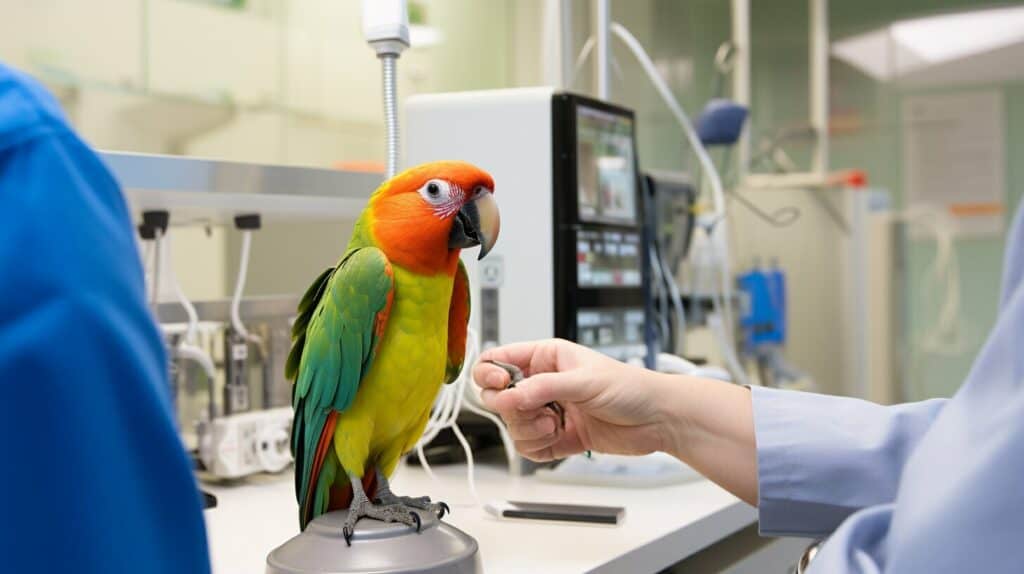
“Regular check-ups with an avian vet are vital to maintaining the overall health and wellbeing of your Kakariki bird.”
Respiratory Problems in Kakariki Birds
Respiratory issues are a common problem for Kakariki birds. Like any other bird, they have a unique respiratory system that requires careful attention. Bacteria, viruses, fungi or environmental factors such as poor air quality and temperature fluctuations can cause respiratory infections. Some of the signs of respiratory issues include coughing, sneezing, wheezing, difficulty breathing, and nasal discharge. If you notice any of these symptoms in your bird, it is essential to consult with an avian vet for proper diagnosis and treatment.
Some of the ways to prevent respiratory problems in Kakariki birds include ensuring that their living environment is clean and free of dust and other airborne irritants. This includes providing them fresh air, regular cage cleaning, and removing dirty or soiled bedding. Another way is to limit their exposure to other birds who may carry airborne diseases.
| Common respiratory infections in Kakariki birds | Symptoms | Treatment |
|---|---|---|
| Chlamydiosis | Eye discharge, difficulty breathing, lethargy, weight loss | Treatment with antibiotics prescribed by an avian vet |
| Aspergillosis | Coughing, wheezing, breathing difficulties, loss of appetite | Treatment with antifungal medication prescribed by an avian vet |
| Pneumonia | Laboured breathing, lethargy, coughing, wheezing, lack of appetite | Treatment with antibiotics prescribed by an avian vet |
It is essential to remember that respiratory infections can be dangerous and life-threatening for birds, and that early diagnosis and prompt treatment are crucial for a successful outcome.
If you suspect that your Kakariki bird is experiencing respiratory issues, it is important to schedule a visit with an avian vet as soon as possible. With proper care, attention, and preventive measures, you can help keep your bird healthy and happy.
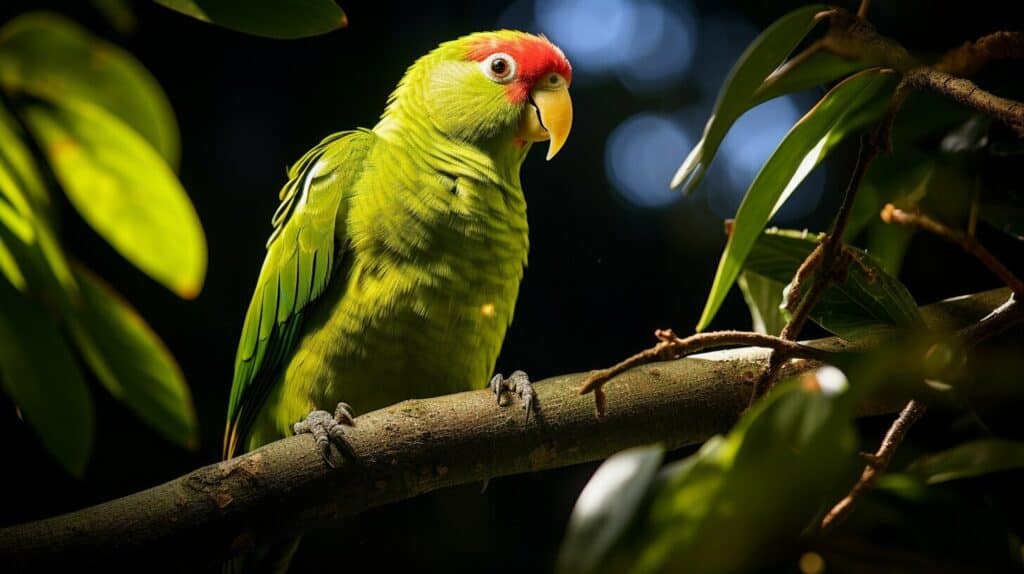
Digestive Issues and Nutritional Needs
Kakariki birds require a balanced diet to maintain their digestive health. Without proper nutrition, they may suffer from gastrointestinal disorders and nutrient deficiencies. In this section, we will discuss some common digestive issues that your Kakariki bird may experience and provide guidance on how to prevent and treat them.
Feeding Practices
In order to maintain the digestive health of your Kakariki bird, it is important to provide them with a varied diet that includes fruits, vegetables, seeds, and grains. Pellets and commercial bird food can also be a good source of nutrition, but they should not make up the entire diet. It is important to avoid feeding your bird fatty, sugary, or processed foods and foods that are toxic or difficult to digest.
It is also important to ensure that your bird can always access fresh water. Regularly cleaning and changing the water will help prevent the growth of harmful bacteria and maintain good hydration.
Common Digestive Issues
| Digestive Issue | Signs and Symptoms | Treatment |
|---|---|---|
| Gastrointestinal Disorders | Loss of appetite, weight loss, vomiting, diarrhoea | Veterinary care, dietary adjustments, medication |
| Nutrient Deficiencies | Dull and brittle feathers, lethargy, weakness | Dietary adjustments, vitamin and mineral supplements |
If your bird is exhibiting any signs of digestive issues, it is important to seek veterinary care immediately. Delaying treatment can lead to more serious health problems in the future.
Preventing Digestive Issues
Preventing digestive issues in your Kakariki bird involves providing them with a healthy and balanced diet and regular exercise and mental stimulation. Avoiding exposure to toxic substances, such as pesticides and cleaning chemicals, will also help maintain their digestive health. Additionally, maintaining a clean and safe environment, including regular cage cleaning, will help prevent the growth of harmful bacteria and promote overall health.
Following these guidelines can help ensure that your Kakariki bird maintains good digestive health and overall well-being.

Feather and Skin Problems in Kakariki Birds
Feathers and skin are essential to the health of Kakariki birds, as they play a vital role in thermoregulation, protection, and flying. However, feather and skin problems are common in these birds, and they can cause discomfort, pain, and even infections.
Feather Plucking: Feather plucking, also known as feather picking, is a behavioural problem that can lead to severe feather loss. The causes of feather plucking are numerous, ranging from stress, boredom, lack of mental stimulation, to skin infections and allergies. Feather plucking can be prevented by providing Kakariki birds with plenty of toys, perches, and space to fly, as well as a healthy diet and a clean environment. If a bird is already a feather plucker, finding the cause is crucial, as it can help to eliminate the behaviour.
Skin Conditions: Kakariki birds are susceptible to skin infections caused by mites, lice, and fungal organisms. These infections can cause itchiness, irritation, and feather loss. Symptoms of skin infections include scratching, pecking, and biting at the affected area. Skin infections can be prevented by maintaining good hygiene and cleaning the cage regularly. Treatment of skin infections depends on the cause, and a veterinarian should be consulted for proper diagnosis and treatment.
Molting: Molting is a natural process in which birds shed old feathers and grow new ones. However, excessive molting can be a sign of health problems, such as nutrient deficiencies or infections. Kakariki birds may also pull out feathers during the molting process, causing feather loss and bald spots. Adequate nutrition and a clean environment can prevent excessive molting and feather loss. Providing your bird with a bath or shower can help to loosen any old feathers and promote the growth of new ones.
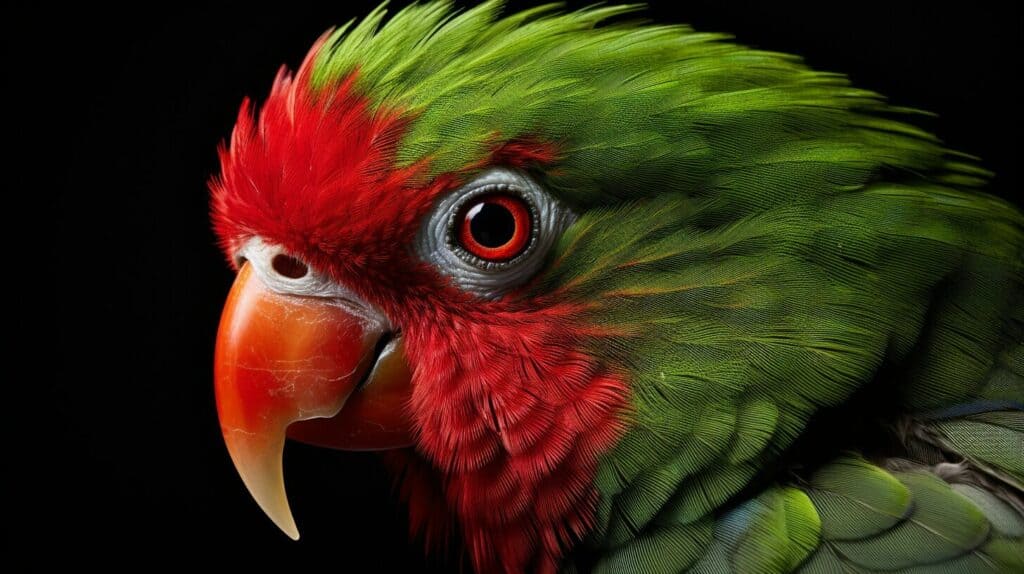
“Feather plucking is a behavioural problem that can lead to severe feather loss. The causes of feather plucking are numerous, ranging from stress, boredom, lack of mental stimulation, to skin infections and allergies.”
It is essential to keep an eye on the condition of your Kakariki’s feathers and skin to identify any problems early on. Early detection can prevent the problem from worsening and causing your bird discomfort. In case of any concerns, it is recommended to consult with an avian veterinarian.
Behavioural Issues and Mental Health
Behavioural issues and mental health are significant concerns for Kakariki birds. As a pet owner, providing your bird with a stimulating and comfortable environment is essential to prevent boredom and negative behaviour.
Did you know? Lack of mental stimulation can cause a range of problems for Kakariki birds, including feather plucking, aggression and screaming.
Preventing Boredom
Kakariki birds are intelligent and social animals that require mental stimulation. Providing your bird with an engaging and spacious environment is crucial in preventing boredom. Consider purchasing a range of toys, such as puzzles, bells, and ropes, to keep your bird entertained.
You can also take your bird outside for some fresh air and playtime. Flight training is an excellent way to encourage physical activity and mental stimulation. If your Kakariki is sufficiently tame, you can train them to fly to your hand or a designated perch.
Building a Strong Bond
Building a strong bond with your Kakariki is crucial for its emotional wellbeing. Spend time with your bird each day, talking to it, and offering treats. Birds are social animals that thrive on attention and affection.
When building a bond with your bird, it’s essential to establish trust. Never force your bird to do something it doesn’t want to do. Be patient and provide plenty of positive reinforcement when training or playing with your Kakariki.
Providing Mental Stimulation
Offering your Kakariki different experiences and challenges is essential in keeping its mind active and healthy. You can enrich your bird’s environment by providing it with a variety of toys, perches, and hiding places.
Creating opportunities for your bird to explore and discover new things is also vital in promoting mental stimulation. Introduce your Kakariki to different foods and textures, or play games that involve finding treats in boxes or cups.

By understanding the behavioural and mental health needs of your Kakariki, you can ensure that it remains happy and healthy. Providing mental stimulation, building a strong bond, and preventing boredom are essential components in keeping your pet bird’s mind active and healthy.
Common Infections and Diseases in Kakariki Birds
Kakariki birds are susceptible to infections and diseases, just like any other pet. While you can’t prevent every health issue, there are steps you can take to minimise the risk of your bird becoming sick. Here, we discuss some of the most common infections and diseases that affect Kakariki birds.
Psittacosis
Also known as parrot fever, psittacosis is a bacterial infection that can affect birds and humans. Symptoms include lethargy, loss of appetite, and difficulty breathing. It is essential to seek veterinary attention if you suspect your bird has psittacosis, as it can be contagious to humans.
| Prevention: | Regularly cleaning your bird’s cage and providing fresh food and water can help prevent psittacosis. If you have multiple birds, keep them separated if one becomes ill. |
|---|---|
| Treatment: | Your avian vet may prescribe antibiotics to treat psittacosis. They may also suggest isolating the bird to prevent the spread of the infection. |
Avian Pox
This viral infection can cause growths on the skin, beak, and feet of birds. It is not typically a life-threatening condition, but it can be uncomfortable for the bird.
| Prevention: | Keep your bird’s cage clean and provide a healthy diet to reduce the risk of developing avian pox. Mosquitoes can also transmit the virus, so use bug repellent and avoid stagnant water, which can attract mosquitoes. |
|---|---|
| Treatment: | There is no cure for avian pox. Your avian vet may recommend supportive care, such as maintaining a clean environment and using ointments to soothe affected areas. The virus typically runs its course within several weeks. |
Bacterial Infections
Kakariki birds can be susceptible to bacterial infections, which can cause symptoms such as lethargy, loss of appetite, and breathing difficulties. A weakened immune system, poor hygiene, or exposure to contaminated food or water can cause bacterial infections.
| Prevention: | Keeping your bird’s cage clean and providing fresh food and water can help prevent bacterial infections. A balanced diet and regular exercise can also help boost your bird’s immune system. |
|---|---|
| Treatment: | Your avian vet may prescribe antibiotics to treat bacterial infections. They may also recommend supportive care, such as keeping your bird warm and comfortable. |
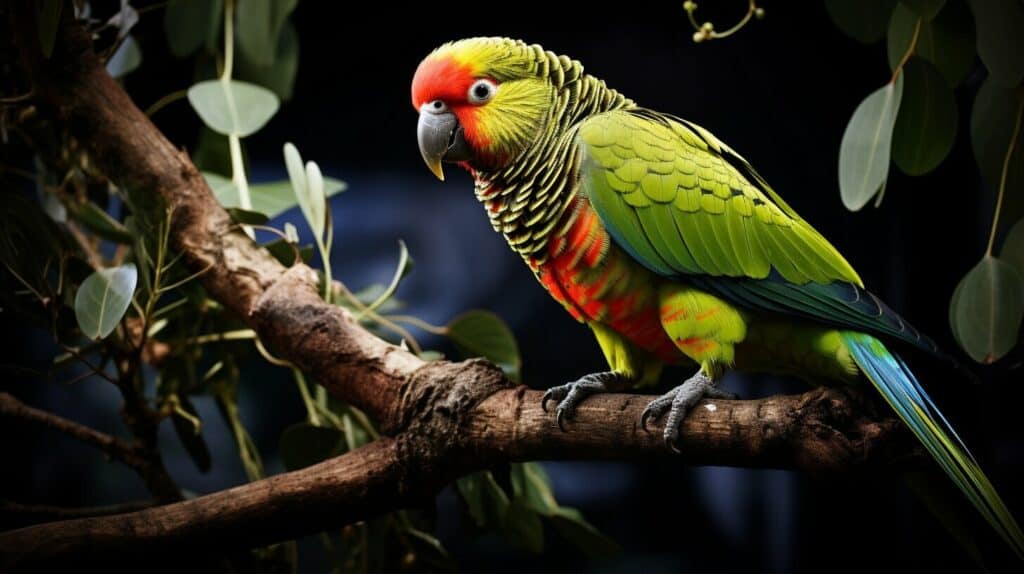
If you suspect your Kakariki bird is unwell, it is essential to seek veterinary attention as soon as possible. Early diagnosis and treatment can help prevent serious health issues and ensure your bird lives a long, healthy life.
Maintaining a Clean and Safe Environment
Keeping a clean and safe environment is essential for the health and wellbeing of your Kakariki bird. Dirty and cluttered cages can lead to the growth of harmful bacteria, fungi, and viruses, leading to infections and diseases. Here are some tips for maintaining a clean and safe environment for your feathered friend:
| Practice Good Hygiene | Keep the Cage Clean | Provide Fresh Water |
|---|---|---|
|
Wash your hands before and after handling your bird or their food and water dishes. This helps prevent the spread of bacteria and diseases. |
Clean the cage regularly with warm water and mild soap. Remove any uneaten food, droppings, and other debris. Replace litter, bedding, and toys as needed. |
Provide fresh, clean water every day. Check the water dish frequently and replace water if it becomes dirty or contaminated. |
In addition to these practices, preventing your bird from being exposed to toxic substances is important. Keep household cleaning products, pesticides, and other chemicals out of reach. Avoid using Teflon-coated or non-stick cookware, which can release toxic fumes when overheated. Also, make sure your Kakariki has access to natural sunlight or appropriate lighting, as this promotes good health and immune function.
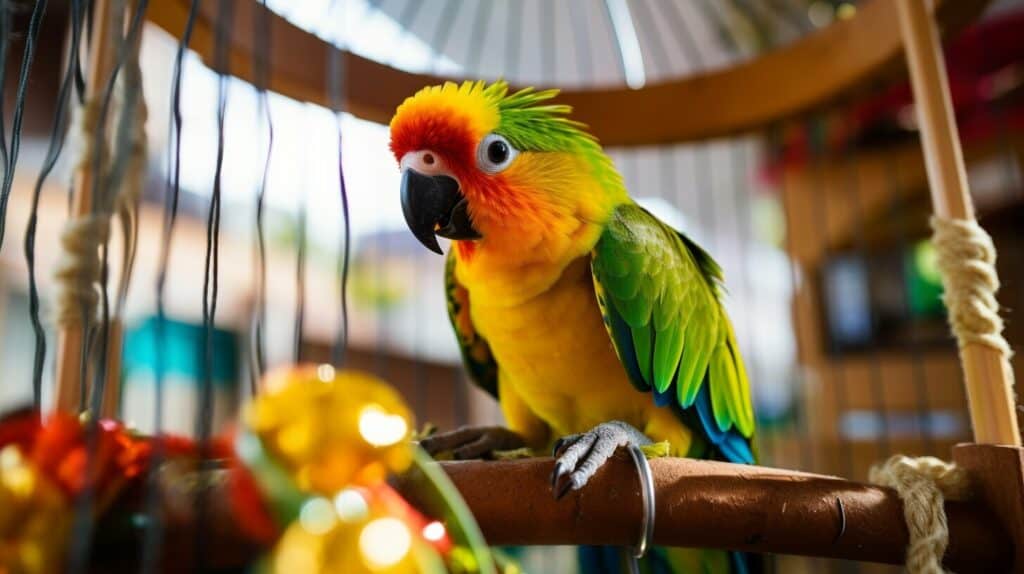
By following these simple tips, you can help ensure that your Kakariki bird lives in a clean and safe environment, promoting their overall health and happiness.
Providing Adequate Exercise and Mental Stimulation
Kakariki birds are energetic creatures that require plenty of exercise and mental stimulation to stay happy and healthy. Providing your bird with these needs not only promotes physical fitness, but also helps prevent behavioural issues such as aggression and boredom.
Regular physical activity is essential for maintaining good health in Kakariki birds.
Flight training is a great way to encourage regular exercise and improve wing strength.
You can also provide your bird with playtime outside of the cage, using toys and perches to create an exciting and interactive environment. Just be sure always to supervise your bird and keep them away from potential hazards.
Mental stimulation is equally important in keeping your Kakariki bird healthy and happy. Toys and puzzles that challenge your bird’s mind can help prevent boredom and promote mental fitness. You can also offer your bird opportunities to learn new skills, such as teaching them to mimic words or perform simple tricks.
Environmental Enrichment Tips
Here are some tips for providing environmental enrichment for your Kakariki bird:
- Rotate your bird’s toys and perches regularly to keep their environment fresh and exciting.
- Access to natural sunlight can help regulate your bird’s sleep patterns and improve their mood.
- Allow your bird to forage for their food, using toys and puzzles that mimic the natural behaviour of wild birds.
- Offer your bird a variety of food textures and flavours to encourage natural feeding behaviour.
“Regular physical activity and mental stimulation are essential for maintaining the health and happiness of your Kakariki bird. By providing opportunities for exercise and environmental enrichment, you can help prevent health problems and promote wellbeing.”
Frequently Asked Questions about Kakariki Health Problems
As a responsible pet owner, it’s important to stay informed about the health and wellbeing of your Kakariki bird. Here are some frequently asked questions related to Kakariki health problems that may be useful for you:
How can I tell if my Kakariki bird is sick?
Several signs may indicate that your bird is under the weather, including lethargy, loss of appetite, sneezing, coughing, or discharge from the eyes or nose. If you observe any of these symptoms, it may be worth contacting a veterinarian.
What are some common health problems that affect Kakariki birds?
Kakariki birds can be prone to respiratory infections, digestive problems, and behavioural issues. They may also be vulnerable to bacterial and viral infections, especially if they come into contact with other birds.
How can I prevent my Kakariki bird from getting sick?
One of the most effective ways to prevent illness is to keep your bird’s living environment clean and hygienic. This includes regularly cleaning the cage, providing clean water and fresh food, and avoiding exposure to harmful substances. Providing your bird with a balanced diet and plenty of mental stimulation is also important.
Can Kakariki birds catch diseases from humans or other animals?
Yes, Kakariki birds can catch diseases from humans or other animals, so it’s important to practice good hygiene and prevent exposure to illness. Ensure to wash your hands before handling your bird and avoid exposing them to other animals that may be carrying illnesses.
What should I do if I suspect my Kakariki bird is sick?
If you suspect your Kakariki bird is unwell, contact a veterinarian specialising in avian care. They can perform a physical exam, run tests if necessary, and recommend appropriate treatment options.
How often should I take my Kakariki bird to the vet?
It’s recommended that you take your Kakariki bird for a check-up with an avian vet at least once a year, even if your bird appears to be healthy. Regular check-ups can help detect potential health problems early on and ensure your bird stays healthy and happy.
Can Kakariki birds be vaccinated against diseases?
Yes, there are vaccines available for some diseases that can affect Kakariki birds, such as avian pox, psittacosis, and some types of bacterial infections. Speak to your vet about whether vaccination is appropriate for your bird.
What are some ways to provide mental stimulation for my Kakariki bird?
There are many ways to provide mental stimulation for your Kakariki bird, including offering a variety of toys, engaging in playtime, and providing opportunities for flight and exploration. You can also rotate toys or use puzzle feeders to keep your bird engaged and mentally stimulated.
What should I do if my Kakariki bird stops eating or drinking?
If your bird stops eating or drinking, it’s important to contact a vet immediately as this could be a serious issue. They can assess your bird’s health and provide appropriate treatment options.
By taking proactive measures and staying vigilant about your bird’s health, you can help keep your Kakariki bird happy and healthy for years.
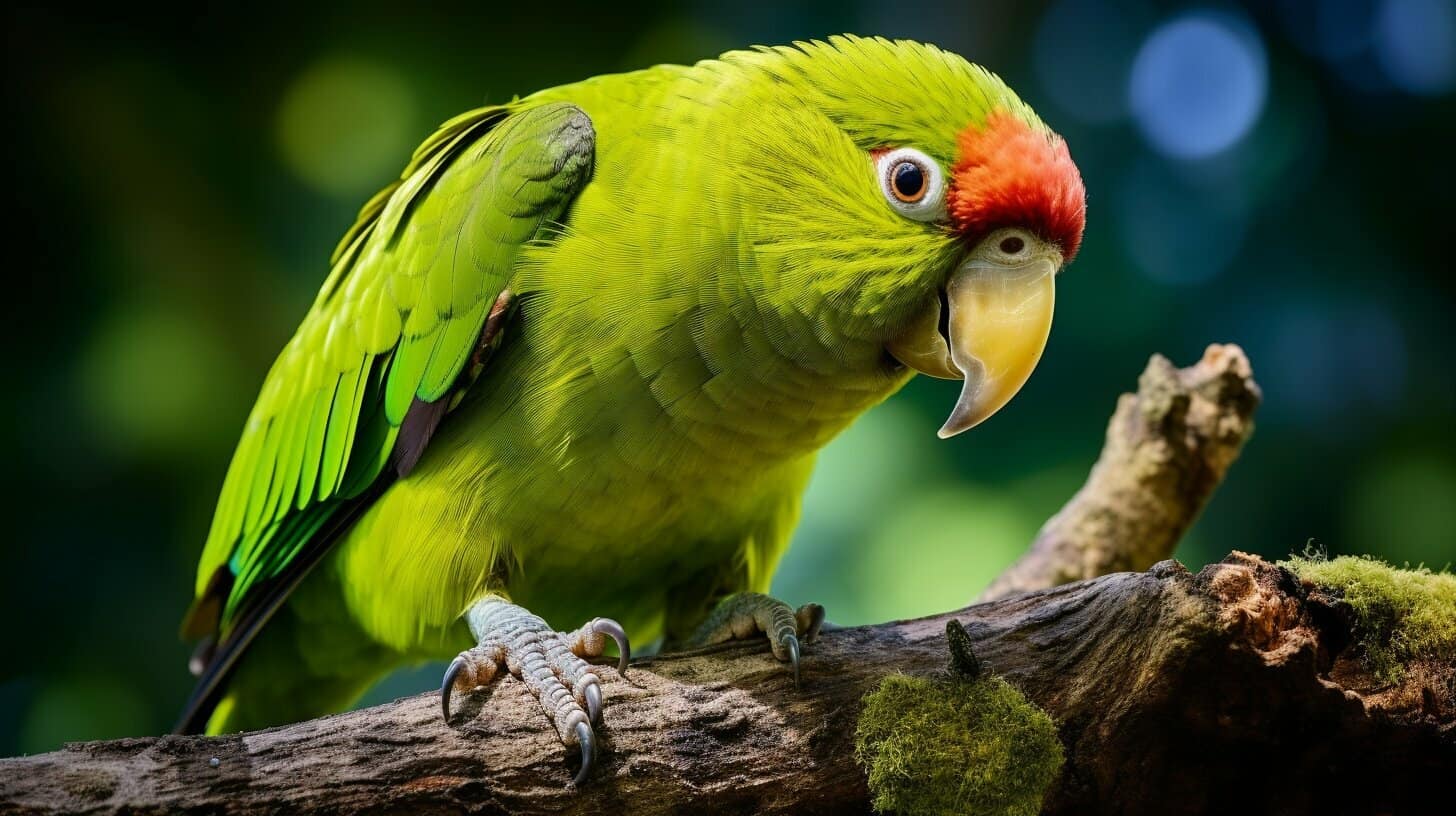
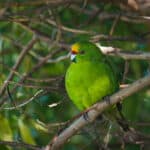
Have comments or questions about this article? Then get involved!
Spotted an error or something we have missed? Let us know